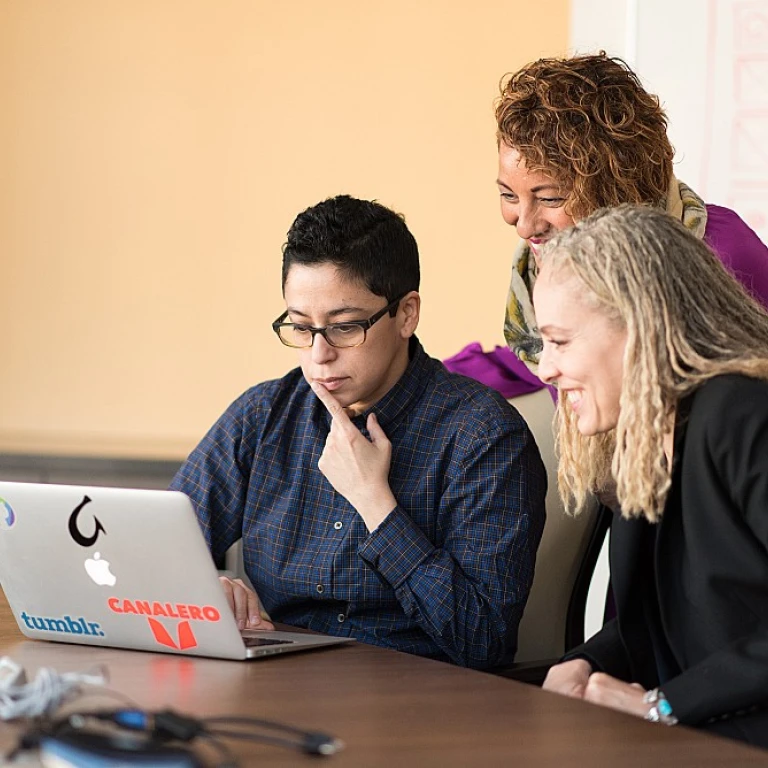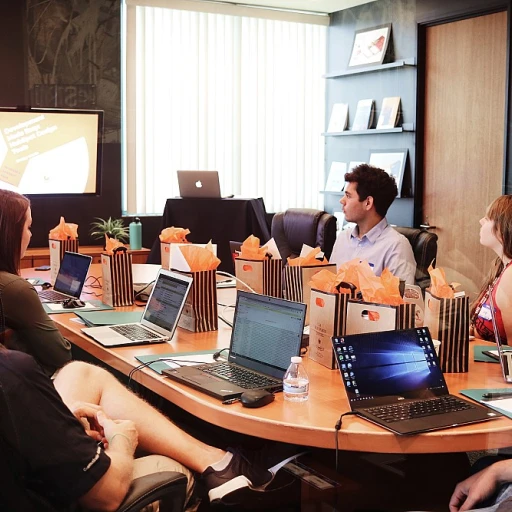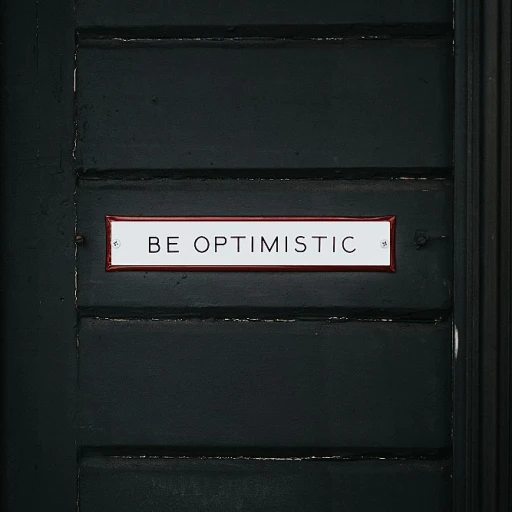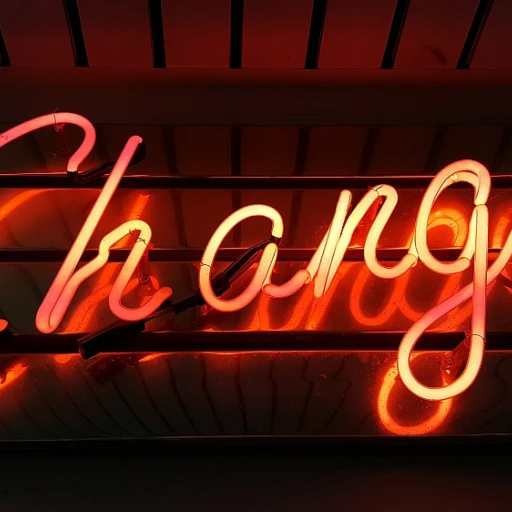
Understanding applicant AI in candidate sourcing
How Artificial Intelligence is Changing Candidate Sourcing
Artificial intelligence is transforming the way organizations approach candidate sourcing. Instead of relying solely on manual resume screening and traditional job postings, companies now use AI-powered applicant tracking systems (ATS) to automate and optimize the recruitment process. These systems leverage data from job applications, resumes, and job descriptions to identify the best candidates for each role, making the hiring process more efficient and effective.
What Makes Applicant AI Different?
Applicant AI stands out by using advanced algorithms for candidate matching and predictive analytics. This technology can analyze large volumes of candidate data, including skills, experience, and even cultural fit, to recommend top talent for open positions. AI-driven resume parsing and candidate screening help recruiters focus on the most qualified applicants, reducing time spent on manual tasks and improving the overall candidate experience.
- Automated candidate screening: AI quickly filters job applicants based on job requirements and qualifications.
- Enhanced candidate matching: Predictive analytics suggest the best fit for each job, increasing the chances of successful hires.
- Improved tracking: AI-powered ATS and tracking systems provide real-time updates on candidate progress throughout the recruitment process.
Integrating AI with Existing Recruitment Systems
Modern recruitment relies on integrating AI with existing applicant tracking systems and other HR technologies. By connecting AI tools with system ATS platforms, organizations can streamline the hiring process from job posting to interview scheduling. This integration not only saves time but also ensures a consistent and data-driven approach to talent acquisition.
For a deeper look at how broader HR technologies, such as ERP systems, are transforming human resources management and supporting AI-driven recruitment, explore this guide to ERP systems in HR.
Key benefits of using applicant AI for sourcing
Unlocking Efficiency and Precision in Sourcing
Artificial intelligence is transforming the way recruiters approach candidate sourcing. By integrating AI-powered applicant tracking systems (ATS) and advanced screening tools, organizations are seeing significant improvements in both the speed and quality of their hiring process. Here are some of the most impactful benefits:
- Faster Resume Parsing and Screening: AI-driven systems can analyze thousands of job applications in seconds, extracting relevant data and matching candidates to job descriptions with impressive accuracy. This reduces manual workload and accelerates the recruitment process.
- Improved Candidate Matching: Predictive analytics and machine learning models help identify the best-fit applicants for each role. By evaluating skills, experience, and even cultural fit, these systems increase the likelihood of successful hires.
- Enhanced Candidate Experience: Automated communications and AI-powered chatbots keep job seekers informed throughout the process, providing timely updates and feedback. This leads to a more positive experience for applicants and strengthens employer branding.
- Data-Driven Decision Making: AI tools collect and analyze large volumes of recruitment data, offering actionable insights into sourcing strategies, job postings performance, and candidate engagement. This empowers recruiters to refine their approach and make evidence-based decisions.
- Scalability and Consistency: AI-powered ATS and tracking systems allow organizations to handle high volumes of job applicants without sacrificing quality. Automated candidate screening ensures that every application is evaluated against the same criteria, reducing bias and human error.
For a deeper look at how AI assistants are enhancing talent booking and candidate sourcing, check out this case study on AI assistants in recruitment.
Real-World Impact on Recruitment Teams
Recruitment teams using AI-powered applicant tracking systems report measurable improvements in time-to-hire and overall process efficiency. By automating repetitive tasks like candidate screening and interview scheduling, recruiters can focus on building relationships with top talent and improving the candidate experience. As AI continues to evolve, its role in optimizing the hiring process and supporting job seekers will only grow stronger.
Challenges and limitations of applicant AI
Where AI-Powered Sourcing Tools Fall Short
Artificial intelligence has transformed the recruitment process, but it’s not without its hurdles. While applicant tracking systems (ATS) and AI-powered tools streamline candidate screening and resume parsing, there are still notable challenges that hiring teams and job seekers should be aware of.
- Bias in Data and Algorithms: AI systems rely on historical data to match candidates to job descriptions. If the data used for training contains bias, the system may unintentionally perpetuate unfair screening practices, impacting candidate experience and diversity in hiring.
- Limited Contextual Understanding: Even the best AI can misinterpret nuances in job applications or candidate profiles. For example, non-traditional career paths or gaps in employment may be flagged negatively, even if they bring valuable experience to the table.
- Over-Reliance on Keywords: Many ATS and AI-powered applicant tracking systems prioritize keyword matching. This can lead to qualified candidates being overlooked if their resumes don’t use the exact terms found in the job posting, reducing the effectiveness of candidate matching.
- Integration and Compatibility Issues: Not all recruitment teams use the same systems. Integrating new AI-powered ATS with existing tracking systems or HR software can be complex, sometimes causing delays in the hiring process or data inconsistencies.
- Transparency and Trust: Job applicants often feel left in the dark about how their applications are evaluated. Lack of transparency in AI-driven screening can harm the candidate experience and erode trust in the recruitment process.
Real-World Limitations and Industry Feedback
Recruitment professionals have reported that while AI speeds up the initial screening, it can sometimes miss top talent due to rigid filtering criteria. Predictive analytics and automated candidate matching are only as good as the data and logic behind them. For organizations seeking alternatives to mainstream systems, exploring alternative candidate sourcing platforms can help address some of these limitations, offering more flexibility and customization.
Ultimately, while AI and powered ATS solutions are reshaping the hiring process, human oversight remains crucial. Balancing automation with personal judgment ensures that the recruitment process is both efficient and fair for all job applicants.
How applicant AI impacts candidate experience
Shaping the Candidate Journey with AI
Artificial intelligence is transforming the way candidates experience the hiring process. When powered applicant tracking systems (ATS) and AI-driven screening tools are used, job seekers encounter a more streamlined and transparent journey from application to interview. Here’s how AI impacts the candidate experience at different stages:
- Faster Response Times: AI-powered ATS can quickly parse resumes and match candidates to job descriptions, reducing the time applicants spend waiting for feedback. This efficiency helps candidates feel valued and keeps them engaged throughout the recruitment process.
- Personalized Communication: Automated systems can send tailored updates and next steps, making the process feel less impersonal. Candidates appreciate timely notifications about their application status, interview scheduling, and feedback.
- Fairer Screening: AI-based candidate screening reduces human bias by focusing on skills, experience, and data-driven criteria. This approach increases the chances for diverse talent to progress through the hiring process, improving overall candidate satisfaction.
- Clarity and Transparency: Many AI-powered systems provide clear explanations for why a candidate was matched to a particular job or why they may not have advanced. This transparency helps job applicants understand the process and trust the system.
Potential Pitfalls in the AI-Driven Experience
While AI brings many improvements, it’s not without challenges. Some candidates may feel disconnected if the process is overly automated, lacking the human touch that can make recruitment feel personal. Automated rejection messages or unclear feedback can leave job seekers frustrated. Additionally, if the data used for predictive analytics or candidate matching is incomplete or biased, the system may overlook qualified applicants.
To deliver the best candidate experience, organizations should balance automation with human interaction. Recruiters can use AI to handle repetitive tasks like resume parsing and initial screening, freeing up time to focus on meaningful conversations and personalized support for candidates.
Measuring and Improving Candidate Experience
Organizations that regularly collect feedback from job applicants and monitor key metrics—such as time to hire, candidate satisfaction, and application drop-off rates—can identify areas for improvement. By refining their AI-powered recruitment process and tracking system, companies can ensure that technology enhances, rather than detracts from, the candidate experience.
Best practices for integrating applicant AI into your sourcing strategy
Building a Strong Foundation for AI Integration
To get the best results from artificial intelligence in candidate sourcing, it’s essential to start with a clear understanding of your hiring process. Begin by mapping out each step, from job postings to candidate screening and interviews. This helps identify where AI-powered applicant tracking systems (ATS) or resume parsing tools can add the most value. Make sure your job descriptions are clear and inclusive, as AI relies on this data for candidate matching and predictive analytics.Aligning AI Tools with Your Recruitment Goals
Not all AI solutions are created equal. Choose systems that fit your recruitment process and talent needs. For example, if you handle a high volume of job applications, a powered ATS with advanced screening and tracking features can save significant time. Look for platforms that integrate seamlessly with your existing tracking system and support data-driven decision-making. Evaluate how well the AI supports candidate experience, not just recruiter efficiency.Ensuring Data Quality and Compliance
AI in recruitment is only as good as the data it processes. Regularly audit your candidate and job applicant data for accuracy and completeness. Make sure your systems comply with privacy regulations and ethical standards. Transparent data practices build trust with job seekers and applicants, which is vital for a positive candidate experience.Training Teams and Monitoring Performance
Equip your recruitment team with the knowledge to use AI tools effectively. Provide training on how to interpret AI-driven recommendations and predictive analytics. Encourage feedback from recruiters and candidates to identify areas for improvement. Monitor key metrics like time-to-hire, candidate matching accuracy, and applicant satisfaction to ensure your AI-powered systems deliver on their promise.- Start with a clear process map
- Choose AI tools that align with your goals
- Prioritize data quality and compliance
- Train your team and gather feedback
- Continuously monitor and optimize performance
Balancing Automation and Human Touch
While AI can automate many aspects of candidate sourcing, maintaining a human element is crucial. Use AI to handle repetitive tasks like resume parsing and initial screening, but ensure recruiters remain available for personalized interactions. This balance improves both efficiency and the overall candidate experience, making your recruitment process more attractive to top talent.Future trends in applicant AI for candidate sourcing
Emerging Technologies Shaping AI in Sourcing
The recruitment process is evolving rapidly, and artificial intelligence is at the center of this transformation. New advancements in predictive analytics, resume parsing, and candidate matching are making it easier for hiring teams to identify top talent faster. Powered ATS and modern tracking systems are now using machine learning to analyze job applications and job postings, helping recruiters find the best candidates with greater accuracy.Personalization and Automation in Candidate Engagement
AI-driven systems are increasingly focused on delivering a personalized candidate experience. Automated communication tools, powered by data from applicant tracking systems, can keep job seekers informed at every stage of the hiring process. This not only improves the experience for applicants but also saves time for recruiters by automating repetitive tasks like candidate screening and interview scheduling.Data-Driven Decision Making
The future of AI in candidate sourcing will rely heavily on data. Recruitment teams are leveraging large datasets to refine their sourcing strategies, from writing more effective job descriptions to optimizing job postings for better reach. Predictive analytics will continue to play a key role in identifying which candidates are most likely to succeed, allowing for smarter, more informed hiring decisions.Integration with Broader Recruitment Ecosystems
Applicant AI is becoming more integrated with other recruitment tools and platforms. Seamless connections between ATS, candidate screening solutions, and talent management systems mean that data flows smoothly throughout the hiring process. This integration helps recruiters track applicants more efficiently and ensures that no promising candidate slips through the cracks.Continuous Improvement and Ethical Considerations
As AI becomes more embedded in sourcing, ongoing improvements are expected in both technology and ethical standards. Recruitment professionals are paying closer attention to bias in AI-powered systems, working to ensure fair and inclusive hiring practices. Regular audits and transparent data practices will be essential for maintaining trust among job applicants and employers alike.- AI will continue to streamline candidate matching and screening, reducing time-to-hire.
- Personalized communication will enhance the candidate experience throughout the recruitment process.
- Data-driven insights will support better decision making for both recruiters and hiring managers.
- Integration with broader systems will improve tracking and management of job applicants.
- Ethical use of AI will remain a priority, ensuring fairness in every step of the process.
Staying updated on these trends is crucial for anyone involved in talent acquisition. As technology advances, the best recruitment teams will be those that adapt quickly, leveraging AI to create a more efficient, fair, and engaging hiring process for all candidates.











